Lil Nas X, Ariana Grande, Jean-Michel Jarre and Björk are just some of the global stars who have tried their hand at performing in the metaverse. Otherwise known as the Musicverse, these concerts, which can bring together thousands of spectators online, offer an experience based on participant interaction, personalized avatars and virtual worlds, and access to exclusive content. What does the Musicverse market represent today? What artistic experiments have already been tried? What are the main technical solutions on offer? What are the challenges facing music industry professionals? All of which sheds light on a scenario: the probable arrival of the Musicverse in the musical landscape…
“Tonight I play for the first time in the metaverse 🙂” musician Vladimir Cauchemar wrote on his facebook page in November 2022. The public is now getting used to seeing this type of publication on social networks. It’s a fact: more and more artists are trying their hand at the metaverse experience… Jean-Michel Jarre is undoubtedly the most media-savvy of them all. “He was the first to try a concert in the metaverse. It was during the COVID-19 epidemic. He was convinced of this new form of expression that frees us from physical constraints. It’s a new territory to explore. Following this performance, the Mairie de Paris commissioned VRROOM to produce a live performance of Jean-Michel Jarre’s “Welcome to the other side“. It’s a work in the metaverse, but also captured by multiple cameras and broadcast on traditional media. A total of 75 million people watched it. That’s huge, even if it includes TV and web streaming. In 2022, Jean-Michel Jarre repeated the experience with OXYMORE, another concert given at the Maison de la Radio. The show was filmed and retransmitted in a virtual world specially created for the occasion. This time, it was only a live broadcast in VRChat,” expl”ains François Klein, producer for Digital Rise and VRROOM, who now accompanies the artist’s XR productions.
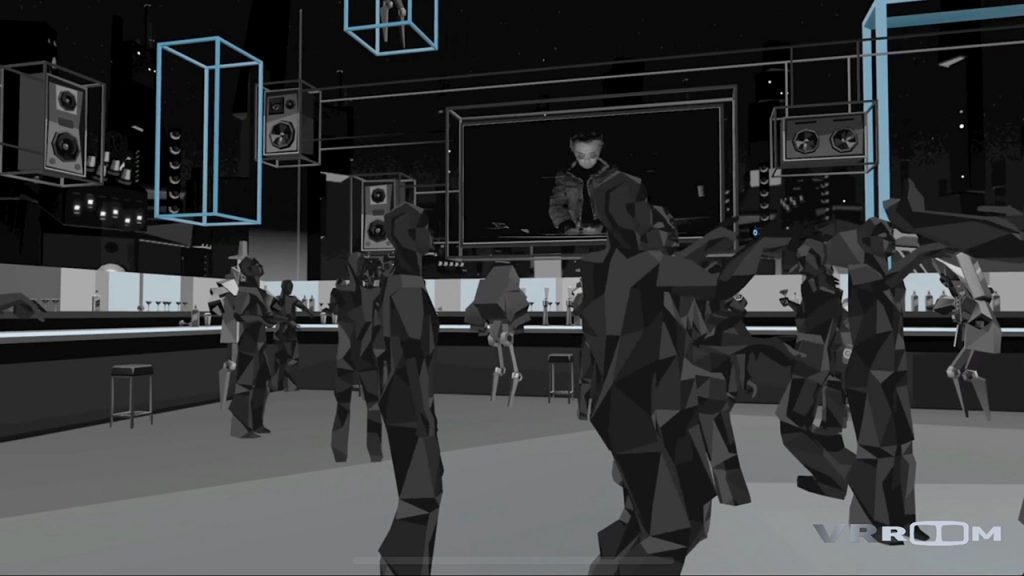
Music and virtual worlds, an emerging market
Let’s clear up any fantasies: Musicverse (a contraction of Music and metaverse) is still a long way from having structured a professional sector and constituted a mature market. All the more so as key figures and benchmark studies on the subject are still inaccessible. François Klein sums up the situation in his own way: “We’re in a phase of transformation. During containment, the Musicverse worked well, sometimes even with a ticketing system. Since then, we’ve seen the industry ecosystem get moving.” Maud Clavier, Managing Director of VRROOM, confirms this dynamism: “We’re seeing gaming players like Roblox and Fortnite positioning themselves in the concert market. We’re also seeing platforms like VRChat move into the entertainment arena. In the same way, all the majors like Warner or Universal are taking an interest in the issue by pushing a few artists to produce immersive shows.” The sector’s professionals therefore seem to have understood the benefits of a pole position in this nascent market, especially as financial support is real: “We are witnessing the arrival of major public investments to build a European ecosystem for virtual universes. Similarly, the PIA France 2030 program supports immersive creation, particularly in the metaverse. These are good indicators of viability and market potential,” continues François Klein.
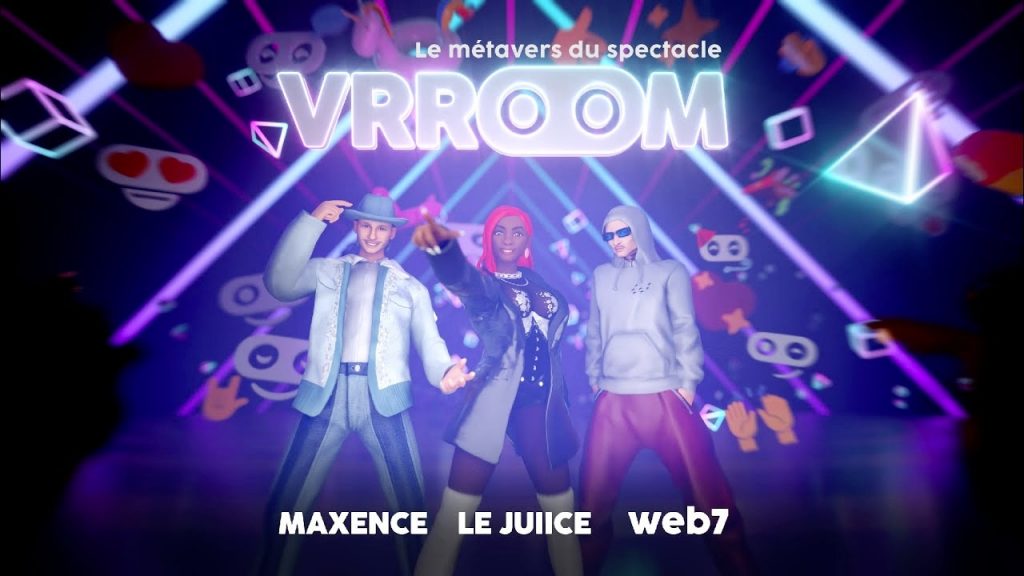
Some festivals that are already pioneers
At the same time, event organizers are starting to imagine festivals in the metaverse. BlockByBlockWest, a festival launched on Minecraft in 2020, the Spotify festival on Roblox in 2021 or Transonic Second Life Festival, which organized its 4th edition in 2023, are interesting examples to observe, all the more so as they take place on existing gaming platforms. The appetite of platforms can also be seen in the creation of “ex nihilo” festivals designed for the metaverse. The Decentraland metaverse Music Festival is a prime example. In 2022, over 200 musical artists representing all musical genres were programmed, including big names such as Björk, Ozzy Osbourne and Souljaboy, as well as other members of the Decentraland community. It’s worth pointing out that this festival was accessible free of charge and without a VR headset. This last fact is noteworthy: the Musicverse is not necessarily synonymous with a virtual reality experience!
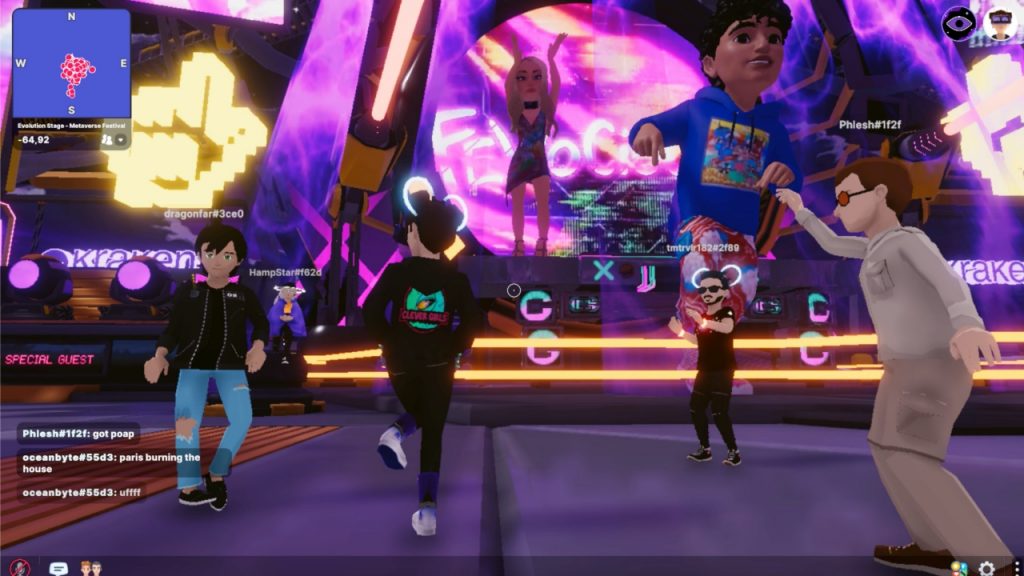
On the other hand, SXSW is a forerunner in the use of VR. Maud Clavier, who provided support to the SXSW festival team, explains: “The first Musivers edition of SXSW took place in 2020 during COVID, at a time when gatherings were prohibited. VRROOM designed a social world via VRChat with several rooms for festival-goers. From the following year, the organizers wanted to continue the experiment with a virtual festival and a physical festival.” This is undoubtedly one of the keys to the Musicverse’s longevity: avoid cannibalizing the physical and virtual editions by better distributing the festival’s audiences. “In my opinion, it’s important to plan two different times of the festival to bring the brand to life in a different way, and to animate the community wisely. It’s a key success factor”. In other words, the Musicverse does not supplant the physical festival experience, but complements it. Another illustration of this philosophy is the famous Coachella festival, which in 2023 organized a parallel event in Fortnite based on the game principles of a treasure hunt.
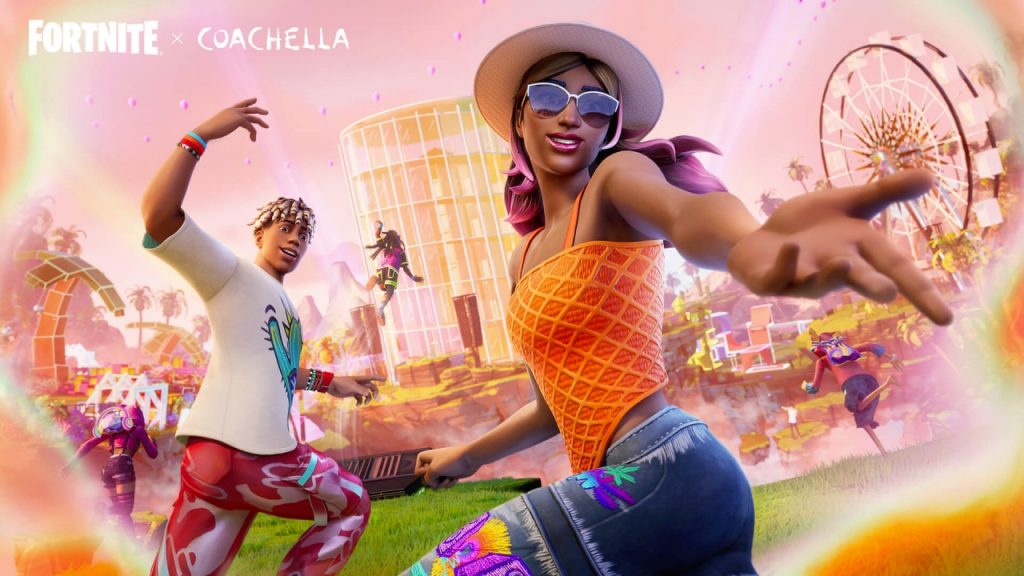
What technical solutions?
All the platforms mentioned so far have their own specific features. First of all, a first category allows you to create virtual worlds from online games: Roblox, Minecraft, Fortnite, SecondLife… These sandbox games have a double advantage: firstly, they anchor new uses among millions of young players, and sometimes even around music, as demonstrated by the success of the music creation game Splash. Secondly, these sandbox games already unite communities of millions of active players. It was in this context that Travis Scott’s Astronomical performance (on Fortnite) garnered tens of millions of views. Other platforms have been specially designed for VR and metaverse experiences. These include the giants VRChat, SandBox VR and Decentraland, decentralized 3D virtual reality platforms. In this relatively dense offer, Ristband is now positioning itself on entertainment experiences and Musicverse in particular (Ristband collaborated with SXSW by working in 2022 on a mixed reality live produced by and for artist Miro Shot).
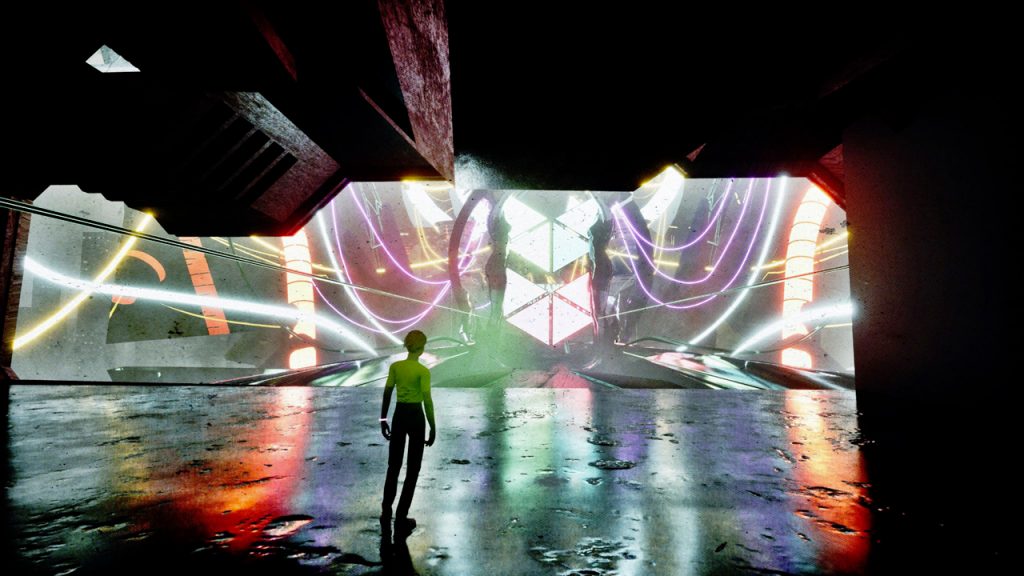
These solutions are often the property of American and Asian companies, which makes the French VRROOM platform all the more interesting to observe. François Klein explains VRROOM’s positioning: “In addition to our production studio activity, we offer a metaverse distribution platform dedicated to live performance. It’s a technical solution offering tools that enable all creative artists to invent their own metaverse universes. There was an urgent need for a European platform that was an alternative to the American giants. In particular, VRROOM respects the notion of RGPD and copyright. American platforms are pretty fuzzy on these subjects.” A beta version of VRROOM thus enables a multitude of creative uses. Maud Clavier adds: “We’re launching the version so that external creators – studios or artists – can create virtual worlds and publish them easily. It’s a solution with an entertainment-oriented editorial line.“
In concrete terms, while VRROOM retains the opportunity to produce certain live shows, the technical range will be quite broad for professionals in the music sector. “There could be shows recorded and then broadcast in the metaverse, live performances in virtual worlds, or concerts recorded during a physical festival and retransmitted by an immersive device, known as a hybrid show. In some cases, holographic devices can also be used. We’ve already explored this solution with Jean-Michel Jarre’s “Oxymore” performance. The idea is to have a range of solutions for capturing artists, so as not to restrict creation. At the same time, motion capture solutions using artificial intelligence are becoming more widely available and accessible (editor’s note: the start-ups MoveAi and Theia Makerless offer this service),” comments Maud Clavier enthusiastically.
Many issues to be resolved
However, the technical aspect is undoubtedly not the most important issue for the future. First and foremost, industry professionals will need to find stability in the Musicverse business model. And for the time being, the idea is to draw inspiration from existing practices in the music sector. Maud Clavier explains: “We want VRROOM to be based on an events business model, with the possibility of product placement and sponsorship. Our platform is a freemium version with monetization via VRROOM Coins, which can be used to buy concert tickets and merchandising. Initially, festival-goers will pay nothing to get used to the coin system.” A ticketing and virtual currency solution that seems to be becoming the norm at a number of events. Another major challenge is to upgrade the skills of existing professions: “We need to think about setting up training courses in collaboration with labels to raise awareness and train teams and artists. Artistic residencies are also an avenue worth exploring, as they enable exchanges between professionals.“
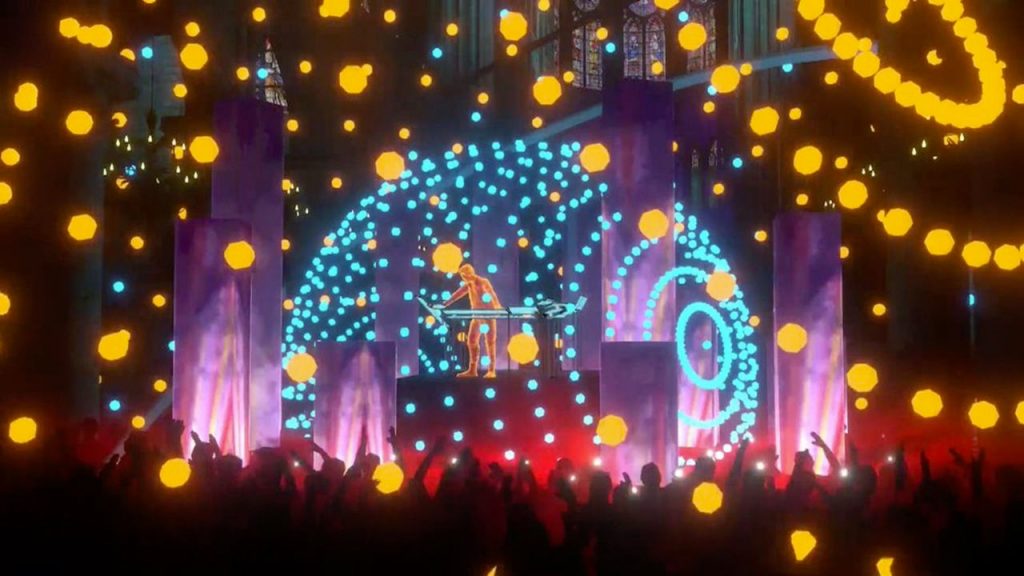
Last but not least, how to combine the sustainability of the Musicverse with the ecological transition. If François Klein’s position opens the debate – “For me, it’s a remedy, a solution for the cultural events sector. We want the total weight of virtual worlds to be a few dozen MB. That’s the strategic challenge.” – His comments on the responsibility of professionals are more indisputable: “All operators in the production chain – producers, developers, designers, artists, broadcasters – will have to question their ecological footprint. This starts with implementing infrastructure solutions – particularly online servers – that are more environmentally efficient.”
More
VRROOM launches its first metaverse platform dedicated to live performance
“VR in a live concert can be a powerful collective experience” – Roman Rappak (Ristband, Miro Shot)
“We were bold enough to operate everything as a live immersive show” – Tupac Martir (Vaal x Satore)

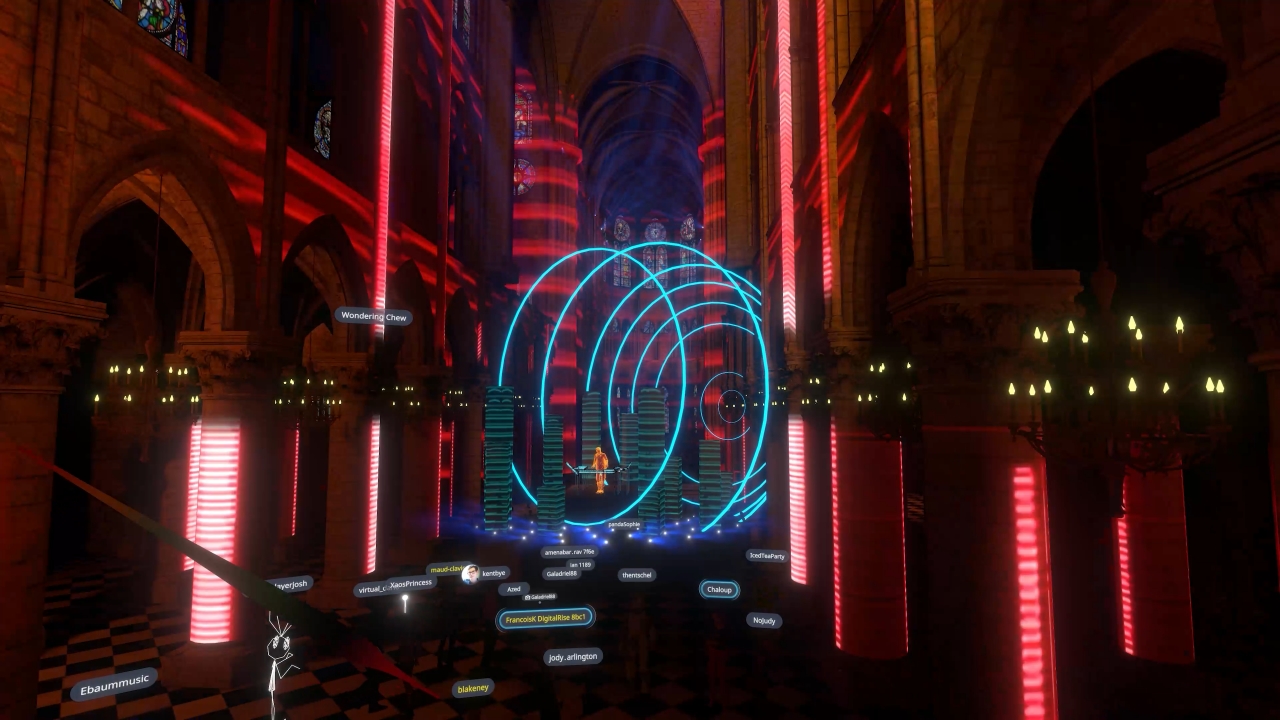

Leave a Reply
You must be logged in to post a comment.